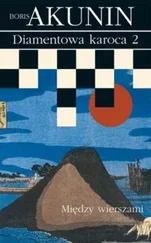The next morning Fandorin set out for his homeland, leaving his associates to deal with raising the gold bars to the surface.
On arriving in St Petersburg, he contacted an old colleague from his time in the Third Section, who now occupied a highly responsible post, and offered his services: Erast Petrovich knew that Russia had catastrophically few specialists on Japan, and he had spent several years living in the Land of the Rising Sun.
The old acquaintance was quite delighted by Fandorin’s visit. He said, however, that he would like to make use of Erast Petrovich in a different capacity.
‘Of course, there aren’t enough experts on Japan, or on many other subjects,’ said the general, blinking rapidly with eyes red from lack of sleep, ‘but there is a far worse rent in our garments, which leaves us exposed, pardon me for saying so, at the most intimate spot. If you only knew, my dear fellow, what a calamitous state our counter-espionage system is in! Things have more or less come together in the army in the field, but in the rear, the confusion is appalling, monstrous. Japanese agents are everywhere, they act with brazen impudence and resourcefulness, and we don’t know how to catch them. We have no experience. We’re used to civilised spies, the European kind, who do their work under cover of an embassy or foreign companies. But the Orientals break all the rules. I’ll tell you what worries me most,’ said the important man, lowering his voice. ‘Our railways. When the war’s happening tens of thousands of versts away from the factories and the conscription centres, victory and defeat depend on the railways, the primary circulatory system of the organism of the state. The entire empire has just one artery from Peter to Arthur. Atrophied, with a feeble pulse, prone to thrombosis and – worst of all – almost completely unprotected. Erast Petrovich, dear fellow, there are two things that I dread in this situation: Japanese sabotage and Russian slovenliness. You have more than enough experience of intelligence work, thank God. And then, they told me that in America you qualified as an engineer. Why not get back in harness, eh? On any terms you like. If you want, we’ll reinstate you in government service; if you want, you can be a freelance, a hired gun. Help us out, will you, put your shoulder to the wheel.’
And so Fandorin found himself engaged at the capital’s Department of Railway Gendarmerie and Police in the capacity of a ‘hired gun’ – that is, a consultant receiving no salary, but endowed with extremely far-reaching powers. The goal set for the consultant was as follows: to develop a security system for the railways, test it in the zone under his jurisdiction and then pass it on to be used by all the Railway Gendarmerie departments of the empire.
It was hectic work, not very much like Erast Fandorin’s preceding activities, but fascinating in its own way. The Department’s jurisdiction extended to two thousand versts of railway lines, hundreds of stations and terminuses, bridges, railway line reservations, depots and workshops – and all this had to be protected against possible attack by the enemy. While the provincial department of gendarmes had several dozen employees, the railway department had more than a thousand. The scale and the responsibility were beyond all comparison. In addition, the duty regulations for the railways’ gendarmes exempted them from performing the functions of a political police, and for Fandorin that was very important: he was not fond of revolutionaries, but he regarded with even greater revulsion the methods by which the Okhrana and the Special Section of the Department of Police endeavoured to eradicate the nihilist contagion. In this sense, Erast Petrovich regarded working for the Railway Gendarmerie Department as ‘clean work’.
Fandorin did not know much about railways, but he could not be classed as a total dilettante. He was, after all, a qualified engineer in the area of self-propelled machines, and twenty years earlier, while investigating a rather complicated case, he had worked on a railway line for a while in the guise of a trainee.
During the year just past, the ‘hired gun’ had achieved a great deal. Gendarme sentries had been established on all trains, including passenger trains; a special regime had been introduced for guarding bridges, tunnels, crossings and points, flying brigades on handcars had been created, and so on and so forth. The innovations introduced in the St Petersburg department were quickly adapted in the other provinces and so far (fingers firmly crossed) there had not been a single major accident, not a single act of sabotage.
Although Fandorin’s official position was a strange one, they had grown accustomed to Erast Petrovich in the Department and regarded him with great respect, referring to him as ‘Mr Engineer’. His superior, Lieutenant General von Kassel, had grown used to relying on his consultant in all matters and never took any decisions without his advice.
And now Leontii Karlovich Kassel was waiting for his assistant in the doorway of his office.
Catching sight of the engineer’s tall, dashing figure at the end of the corridor, he went rushing towards it.
‘Of all things, the Tezoimenitsky Bridge!’ the general shouted before he was even close. ‘We wrote to the minister and warned him the bridge was dilapidated and unsafe! And now he rebukes me and threatens me: says that if this turns out to be Japanese sabotage – I’ll stand trial for it. How in hell can it be sabotage? The Tezoimenitsky Bridge hasn’t been repaired since 1850! And here’s the result for you: it couldn’t bear the weight of a military transport carrying heavy artillery. The ordnance is ruined. There are large numbers of dead. And worst of all, the line to Moscow has been disrupted!’
‘A good thing it happened here, and not beyond Samara,’ said Erast Petrovich, following von Kassel into the office and closing the door. ‘Here we can send trains by an alternative route along the Novgorod line. But is it certain the bridge collapsed and this is not sabotage?’
Leontii Karlovich frowned.
‘Oh, come, now, how can it be sabotage? You ought to know, you developed the regulations yourself. Sentries on the bridge, the rails checked every half-hour, gendarmes on duty on the brake platforms of all trains – my territory is in perfect order. Tell me instead, if you can, what our unfortunate homeland has done to deserve such disasters. We’re straining ourselves to the very limit as it is. What about Tsushima, eh? Have you read the newspaper reports? A total debacle, and not a single enemy vessel sunk. Where did it come from, this Japan? When I entered the service, no one had even heard of such a country. And now it’s sprung up out of nowhere, in just a few years, like a mushroom overnight. Why, it’s totally unheard of.’
‘Why d-do you say it’s unheard of?’ Fandorin replied with his habitual light stammer. ‘Japan began modernising in 1868, thirty-seven years ago. Less time than that passed from the moment Peter the Great ascended the throne until the battle of Poltava. Before that, there was no such power as Russia, then it suddenly sprang up out of nowhere, also like a m-mushroom, overnight.’
‘Oh, come on, that’s history,’ the general said dismissively, crossing himself with broad sweeps of his hand. ‘I’ll tell you what it is. It’s God punishing us for our sins. Punishing us harshly, as he did the Egyptian pharaoh, with miraculous disasters. So help me …’ – Leontii Karlovich glanced round at the door and dropped his voice to a whisper – ‘… we’ve lost the war.’
‘I d-don’t agree,’ Erast Petrovich snapped. ‘Not on a single point. Nothing miraculous has occurred. That is one. What has happened is only what should have been expected. It’s hardly surprising that Russia has not won a single battle. It would have been an absolute miracle if she had. Our enlisted man is no match for the Japanese soldier – he has less stamina, less learning and less martial spirit. Let us assume that the Russian officer is not bad, but the Japanese officer is simply superb. And then, what can we say about the generals (please don’t take this personally, Your Excellency); ours are fat and lack initiative, the Japanese generals are lean and forceful. If we are still holding out somehow, the only reason is that it is easier to defend than attack. But don’t be alarmed, Leontii Karpovich. We may lose the battles, but we shall win the war. And that is t-two. We are immeasurably stronger than the Japanese in the most important thing of all: we have economic might, human and natural resources. Time is on our side. Commander-in-Chief Linevich is acting entirely correctly, unlike Kuropatkin; he is drawing out the campaign, building up his strength. The longer it goes on, the weaker the Japanese become. Their treasury is on the brink of bankruptcy, their lines of communication are being extended further and further, their reserves are being drained. All we have to do is avoid large-scale battles, and victory is in the b-bag. Nothing could have been more stupid than to drag the Baltic fleet halfway round the world to be devoured by Admiral Togo.’
Читать дальше









